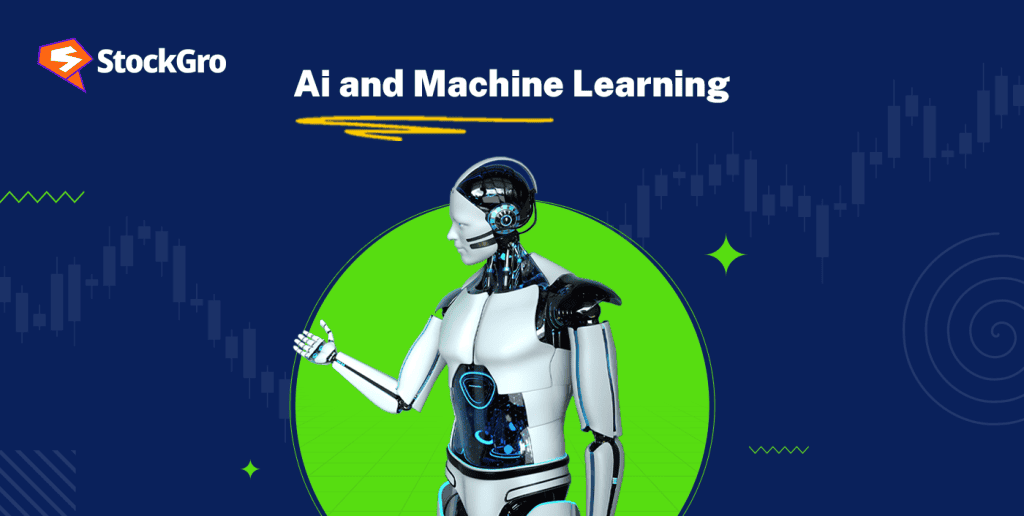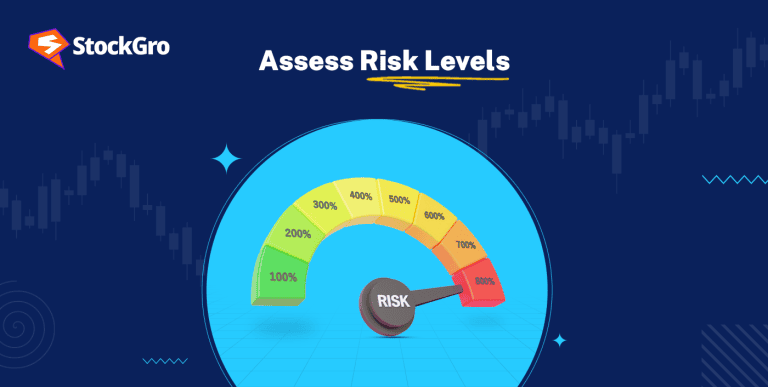
AI and machine learning have been together helping modern traders improve their trading process like never before. Such a powerful amalgamation of technology can analyse millions of data points, provide data-driven predictions, and execute the trade faster than manually doing them through human interference.
AI in stock trading has significantly influenced investors to approach the market correctly by utilising predictive models that can learn and adapt continuously. Keep reading as we present these technologies’ influence over stock trading and the benefits of following them.
Also Read: What is spread trading? A complete guide
AI and machine learning’s impact on stock trading
Artificial intelligence and machine learning have almost revolutionised the finance sector, especially in modern stock trading. AI algorithms can rightly analyse any data size to make complex predictions easier and let traders make informed decisions based on it.
The AIML (Artificial Intelligence Markup Language) can learn from the collective historical data and adapt strategies. This can increase the accuracy levels of the trading models. Such technologies have improved profitability and efficiency in stock market investments, letting individuals wisely engage in trading activities and navigate the overall complex market landscape.
Market analysis
Market analysis is one important process that provides critical insights for traders regarding the dynamics of a particular market. It comprehensively examines factors affecting supply and demand, pricing, and other market trends. Artificial intelligence helps gather relevant data and transform it into actionable intelligence, further guiding the stakeholders to make informed decisions.
Predictive analysis
AIML identifies the latest trends and patterns in the stock market, enabling traders to make valid predictions about future price fluctuations. Time-series analysis types of predictive models help forecast market movements to optimise trading strategies accordingly.
Different ways AI can help conduct market analysis
To conduct better market analysis, different AI tools can be incorporated to find valuable results, and a few of them are listed as below.
Customer journey analysis
AI and machine learning can analyse multiple touchpoints and interactions as made by the trade throughout their investment journey. This way, it can help identify pain points, crucial moments, and possible areas of opportunity. By rightly understanding the customer journey, deriving market strategies can be a cakewalk.
Social media listening
Speech and voice-enabled AI marketing analytics tools let modern traders analyse and extract valuable insights through voice-based survey responses. AI-driven social media listening tools help check and analyse conversations about stock market trends on various social media platforms. Such tools identify trending topics, track sentiment, and gather valuable insights per the traders’ preferences by abiding by emerging market trends.
Video and image analysis
With the recent rise of visual content creation on social media platforms, AI and ML-powered video and image analysis tools have become invaluable in modern stock trading. Such tools can automatically analyse and categorise visual content to recognise scenes, objects, and emotions. This kind of video and image depiction provides deeper insights into how traders and market researchers interact with social media.
Algorithmic trading
AI and ML algorithms have certainly automated the trade execution process based on predefined set standards. This kind of integration does enhance the trading process and even eliminates emotional biases.
Also Read: An overview of silver futures trading in India
Key differences between AI and human trading
The table below showcases the key differences that elevate the benefits of AI trading compared to manual human-involved trading processes.
| Aspect | AI Trading | Human Trading |
| Speed | Lightning fast execution guaranteed | Slower execution |
| Decision-making | Unbiased and data-driven | Emotionally influenced |
| Data Processing | Simultaneously analyses vast datasets | Limited to the individual traders’ capacity |
| Adaptability | Highly relies on algorithms and historical data | Considers qualitative factors |
| Cost | After setting up, yields a lower cost per trade | Higher as it involves manual interpretation |
AI and risk management
AI helps stock traders monitor their portfolios, identify potential risks, and lets them take beneficiary action to mitigate the risks. The following are some of the working ways in which AI can be incorporated to manage risk in modern stock trading:
Identifying possible risks
AI algorithms help analyse market data, like current events and historical trends, to see possible risks the traders must be aware of. Artificial intelligence detects noticeable changes in market conditions or economic indicators, further signaling a risk of a market downturn or correction.
Timely risk alert for traders
Once the possible risks have been identified, the artificial intelligence alerts the trader to take immediate action. This could be done by sending alerts or notifications to the traders through email or other communication channels.
Offering risk management recommendations
Adding to the timely risk alert system, AI recommends possible ways to mitigate risks. AI algorithms suggest creating a diversified portfolio to reduce any kind of impact on it, given the potential market downturn. It can even recommend the exact exit point at which the trade needs to be done before acquiring potential market risks.
Wisely monitoring risk levels.
AI continuously monitors the market conditions and the risk levels, ensuring the traders know any possible changes that can highly impact their investments.
Executing stock trades through AI interventions
AIML can be vitally used to execute trades automatically based on predefined rules, reducing the time and effort humans require to take over the same task.
- Trading Algorithms: AI can be integrated to develop trading algorithms that can analyse current market data with a historical connection to develop a better-informed decision on when to buy or sell stocks.
- Predictive Analytics: AI can analyse historical data and develop predictions that favor future market movements. This way, traders know the exact point at which to buy or sell stocks.
AI has the potential to significantly improve the accuracy and efficiency of stock trades by automating the execution process, which gets executed through timely information passage to traders.
Also Read: Fundraising debate: IPO vs FPO
Conclusion
AI and machine learning have every other potential to create a profitable and worthy impact on how stocks get traded. Even though AI can certainly enhance the accuracy and efficiency levels in trading, it does not come as a replacement for human judgment. Always utilise it as a tool and consider its risks and benefits, other than relying entirely on AI trading practices.
FAQs
- What is the role of AI and machine learning in modern trading?
AI and machine learning provide data-driven judgments, therefore transforming trade. Using past data analysis, machine learning models forecast changes in the market. Providing real-time insights, Natural Language Processing (NLP) reads news, earnings reports, and social media sentiment. These tools let traders control risks, maximise their investments, and simplify tasks. Advanced algorithms change with the times to match market dynamics, enhancing trading operations’ profitability and efficiency. These instruments enable traders to remain competitive in swiftly changing financial markets through their combined strength.
- How has AI impacted stock trading?
Artificial intelligence has greatly improved stock trading by allowing quicker and more efficient markets. Hedge funds and investment banks utilise automated trading algorithms, which minimise human mistakes by completing trades at explosive speed. AI-supported quantitative techniques examine intricate data sets to enable better decision-making. This has raised market efficiency, lowered transaction costs, and boosted liquidity. These developments help major asset classes, including US stocks, enable precise and little market disturbance of major deals to be carried out.
- How is machine learning used in stock trading?
Machine learning (ML) finds trends and forecasts price swings in stock trading. ML models project stock trends using extensive historical data analysis, guiding traders in making wise judgments. In markets like India, ML enables adaptation to particular local trading quirks. These algorithms improve themselves with time, hence raising forecast accuracy. For risk analysis, portfolio optimisation, and strategy back-testing, machine learning is a vital instrument for individual and institutional traders.
- How to use artificial intelligence in stock trading?
In stock trading, artificial intelligence refers to automated, optimally performing algorithms. Use AI techniques first to examine news sentiment, economic data, and market trends. Apply machine learning algorithms to forecast stock values and spot successful trading prospects. Automate trade execution using AI-powered systems to eliminate delays and mistakes. Risk management strategies combined with predictive analytics maximise returns. Artificial intelligence, which uses real-time feedback and data analysis, also enables ongoing strategy improvement.
- What are AI strategies for trading?
In trading, artificial intelligence strategies encompass several methods, including algorithmic trading, which uses data patterns to automate choices. Deep learning and machine learning models evaluate news events, historical trends, and economic data for best use. Utilising news and social media information, sentiment analysis evaluates market emotion. Artificial intelligence helps portfolios balance risk and reward. Using algorithms, high-frequency trading makes quick, profit-oriented milliseconds transactions. These artificial intelligence-driven approaches improve trading procedures’ accuracy and efficiency.

